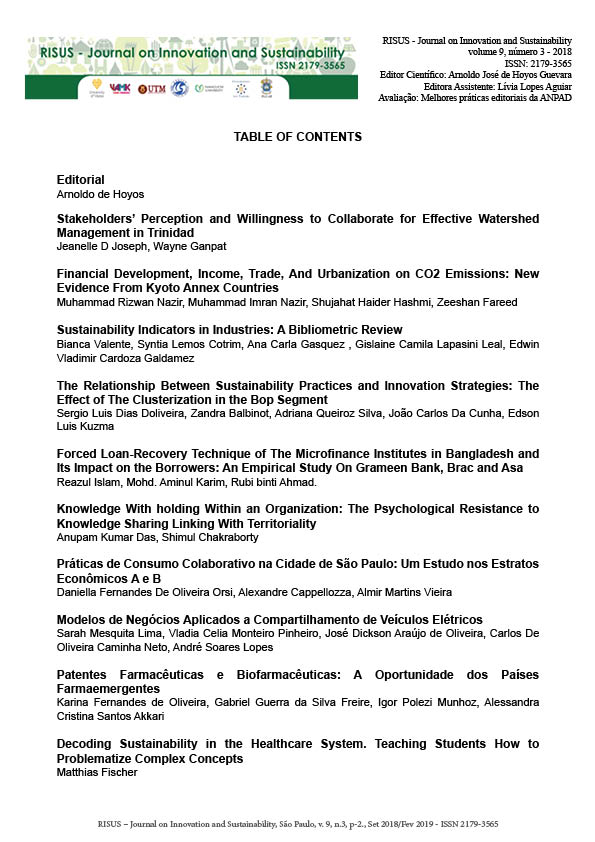KNOWLEDGE WITHHOLDING WITHIN AN ORGANIZATION: THE PSYCHOLOGICAL RESISTANCE TO KNOWLEDGE SHARING LINKING WITH TERRITORIALITY
DOI:
https://doi.org/10.24212/2179-3565.2018v9i3p94-108Keywords:
Knowledge Management, Knowledge Sharing, Knowledge Withholding, Innovation, Two-Factor Theory of motivationAbstract
The world of knowledge management consists of different terms that are flying around. Some words are more significant and frequently used than others. Knowledge sharing and knowledge transfer are sometimes measured to have overlapping content and used synonymously. The transfer of knowledge between organizational members has drawn consideration from both academia and business because company competitiveness is linked directly to the dissemination of innovation through an organization. Regardless of the efforts to increase knowledge sharing in organizations, success has been subtle. It is pretty clear that in many instances, employees are not willing to share knowledge even when organizational practices are followed to facilitate transfer. As the scope of innovation within an organization depends on the efficient transfer of knowledge between members, this paper emphases on the concept of knowledge withholding, which is known to interrupt this transfer and distinguish from related concepts (knowledge barriers, knowledge hiding). The aim of this paper is to make a contribution in finding the proper demarcations between these concepts. Firstly, to prove that knowledge sharing and knowledge withholding are separate concepts, Herzberg’s twofactor theory is used which explain the difference between them. Secondly, previous studies on knowledge management are exposed to have unnoticed knowledge withholding in courtesy of knowledge sharing, leading to a lack of information on the earlier. Thirdly, knowledge withholding is defined into two separate manners: the intentional hiding and the unintentional hoarding of knowledge. Finally, characteristics of knowledge withholding are abbreviated based on four territorial behaviors associated to employees in order to advocate areas for further study.Downloads
Published
2018-10-26
Issue
Section
Papers
License
This Journal is licensed under a Creative Commons Attribution-Non Commercial-No Derivers 4.0 International license.
1.The author (s) authorize the publication of the article in the journal;
2.The author (s) warrant that the contribution is original and unpublished and is not in the process of being evaluated in other journal (s);
3. The journal is not responsible for the opinions, ideas and concepts emitted in the texts, as they are the sole responsibility of its author (s);
4. The editors are entitled to make textual adjustments and to adapt the articles to the standards of publication.


